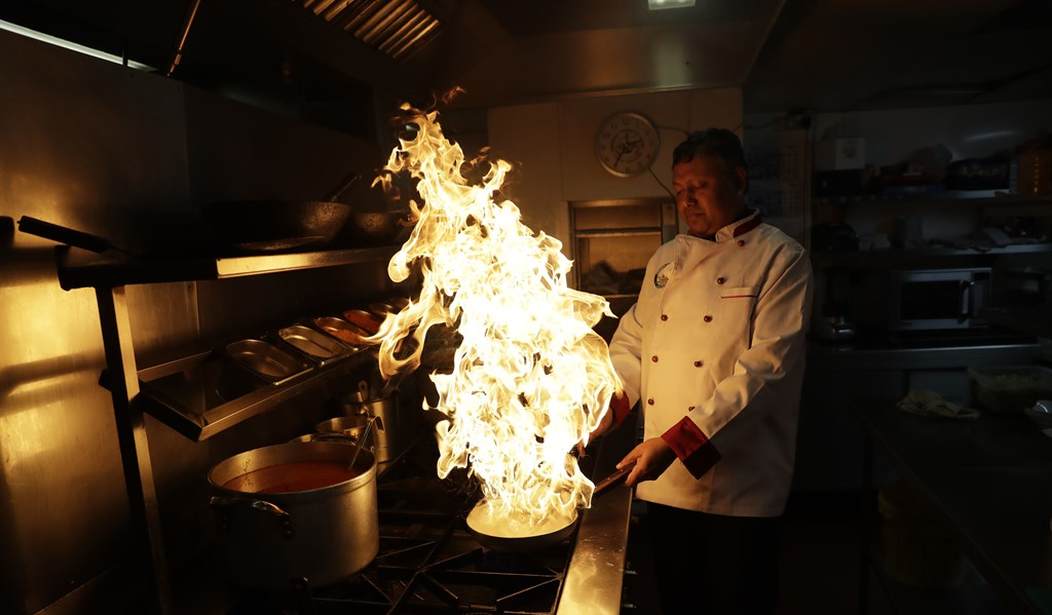Whenever I write about the “Fight for 15” and the impact of steeply increasing minimum wage rates on employment I am regularly assured by liberal activists that such concerns are either false or severely overblown. There is an entire body of work in the progressive sphere dedicated to nothing but this particular propaganda effort. The premise makes no sense in terms of basic economics (or simply math, for that matter) but it keeps on being repeated. And yet, when the experiment is moved off of the chalkboard and out into the real world the opposite always seems to happen.
The Washington Examiner takes a look at a new study by the Harvard Business School this week which specifically digs into the restaurant business in San Francisco, where they have been jacking up their minimum wage like a golden escalator. The results pretty much speak for themselves.
San Francisco’s higher minimum wage is causing an increasing number of restaurants to go out of business even before it is fully phased in, a new study by the Harvard Business School found.
The closings were concentrated among struggling, lower-rated restaurants. The higher minimum also caused fewer new restaurants to open, it found.
“We provide suggestive evidence that higher minimum wage increases overall exit rates among restaurants, where a $1 increase in the minimum wage leads to approximately a 4 to 10 percent increase in the likelihood of exit,” report Dara Lee and Michael Luca, authors of “Survival of the Fittest: The Impact of the Minimum Wage on Firm Exit.” The study used as a case study San Francisco, which has an estimated 6,000 restaurants in the Bay Area and is ratcheting up its minimum wage. Restaurants are one of the largest employers of minimum wage workers.
San Francisco is leaving most other metropolitan areas in the dust in terms of the minimum wage. They’re already at $13 per hour (well above the state or federal minimums) and will be at $15 per hour next year. Even more significantly in terms of the restaurant business is the fact that they make no exception for tipped employees, covering almost all of the wait staff in eateries. And the impact has already been dramatic.
Proponents of higher minimum wage levels will likely want to point to the fact that not all restaurants are affected equally. As the Harvard study found, the most expensive and highly rated restaurants don’t seem to be affected at all. The closures and cutbacks are hitting all of the more modest priced outlets with lower customer ratings. Unfortunately for San Francisco’s workforce, that’s the majority of them. And the difference they are seeing makes total sense. If a five star restaurant which already charges fifty dollars for a steak has to raise their prices by 10% to cover the higher labor costs, the clientele they are attracting probably won’t complain too much. They are serving the sorts of people who can afford to pay well for good service and top rated chow. But a price increase which hits the places serving those who are counting their pennies will drive patrons away rather quickly.
A number of owners have tried to adopt to this brave new world by enacting a no tipping policy, but in case after case that simply hasn’t worked. (Joe’s Crab Shack was one of the most famous and they gave up in under a year.) Dumping the higher labor costs directly onto the customers with the diners having no say in how the wait staff performed was unpopular. And as for the workers, the really skilled ones who get jobs in higher end eateries can (and do) earn many times their base salary in tips if they do a great job. Policies such as these actually provide a negative incentive to excel at your job.
We’ve seen this in one city after another. Rapid increases in labor costs simply can’t be ignored by the free market no matter how politically popular they are. And San Francisco is just the latest location to learn this lesson the hard way.








Join the conversation as a VIP Member